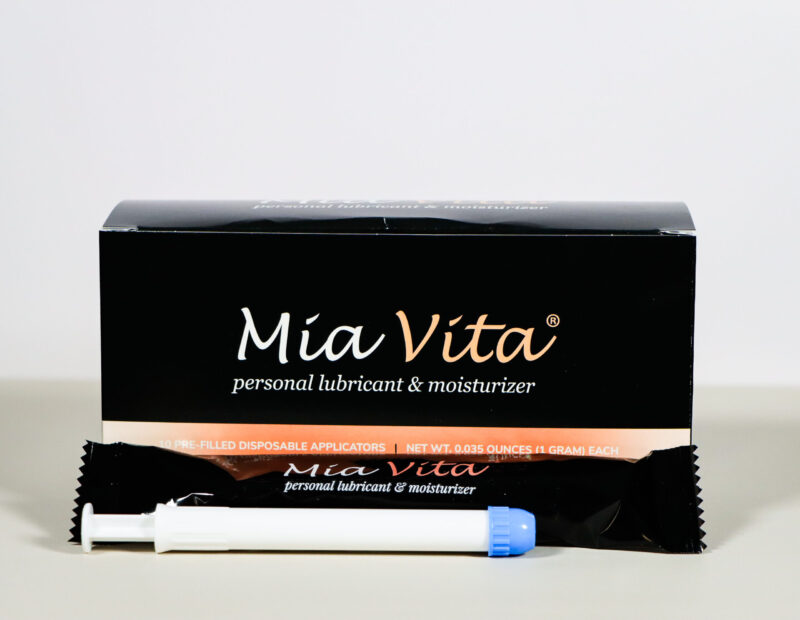Women’s health and hormones do not exist in a vacuum, and conditions like polycystic ovary syndrome (PCOS) can impact normal life transitions and events like perimenopause and pregnancy. Hormonal imbalances lie at the root of these conditions and, regarding PCOS and perimenopause, symptoms often overlap. Whether you’re hoping for a pregnancy or curious about the impact of a PCOS diagnosis on your future fertility, it’s vital to understand your hormonal health. How does a PCOS diagnosis impact your transition into menopause? And how does your fertility change, if at all, when you begin perimenopause? Let’s find out.
What is PCOS?
PCOS, one of the most common endocrine disorders among women, often appears during adolescence and is most noticeable during the reproductive years. Depending on criteria used, 4-21% of women will receive a diagnosis of PCOS during their lifetime.
PCOS can manifest differently in each person. Its most common symptoms include excess facial hair, acne, weight gain, irregular periods, and, per its name, ovarian cysts.
What causes PCOS?
Leading theories about the development of PCOS relate to genetics, too many androgens (male hormones), and too much insulin (the hormone that helps change blood sugar into energy). When your body doesn’t process or use insulin well, you may develop insulin resistance, increasing your risk for type 2 diabetes.
However, half of women with PCOS do not show symptoms, and misdiagnosis and delayed diagnosis are often synonymous with PCOS. Many women don’t find out they have PCOS until they want to get pregnant and struggle with infertility.
How does PCOS impact fertility?
Because women with PCOS often produce too many male hormones like testosterone, their bodies produce less progesterone, a hormone essential for regulating your period and getting pregnant. Higher levels of male hormones can also stop the ovaries from releasing an egg during a menstrual cycle, also known as ovulation.
A diagnosis of PCOS does not mean a woman cannot get pregnant. With treatment, successful pregnancies are possible with PCOS. Even so, it’s good to be aware that PCOS can contribute to certain pregnancy risk factors, such as miscarriage, gestational diabetes, and preeclampsia (high blood pressure during pregnancy).
How does PCOS impact perimenopause?
You may recall that perimenopause begins when your hormones, particularly estrogen, fluctuate and then decline until you’ve gone twelve months without a period. At this point, you’ve reached menopause and entered into postmenopause. For some women, perimenopause lasts six months; for others, it can last up to ten years.
Women with PCOS may have difficulty determining when they enter perimenopause as symptoms between perimenopause and PCOS tend to overlap. PCOS can also delay menopause for two to four years longer than in women without.
And as much as we’d like it to be the case, PCOS does not go away during perimenopause or postmenopause. Though that was the assumption for years, we now understand that some women continue to experience PCOS symptoms into postmenopause. As one study noted, PCOS in perimenopause and postmenopause changes from “a reproductive disease to a more metabolic disorder,” meaning symptoms such as insulin resistance and heart disease may become more prominent than reproductive health-related symptoms.
Studies also confirm that “reproductive hormones in women with PCOS differ from those without PCOS after menopause,” indicating a continued hormonal difference as male hormone levels tend to remain higher. However, no diagnostic criteria exist for women with PCOS post-menopause.
How does a woman with PCOS’s fertility change during perimenopause?
A woman’s fertility begins to decline in her early 30s and more so between the ages of 35 and 40. But if infertility caused by PCOS corresponds to a hormonal imbalance, what happens when your hormones start fluctuating during perimenopause? Though it’s not common to become pregnant during perimenopause, it’s not impossible.
And for women with PCOS, researchers suspect fluctuating hormones may increase fertility in some women. In essence, what was once out of balance can be brought back into balance for a short while as your body goes through perimenopause. Women with PCOS may even find their periods become more regular. However, due to fluctuating estrogen and progesterone levels during perimenopause, it’s difficult to predict when ovulation occurs.
What are the best ways to manage PCOS and perimenopause?
Treatment for managing symptoms of perimenopause and PCOS often look similar as both address imbalance hormones.
Balanced hormones often result in a more regular menstrual cycle and can improve fertility if you’ve yet to pass the menopause milestone. And, if you wish to become pregnant, a regular menstrual cycle can help you predict whether you are or are not ovulating prior to perimenopause.
But if you do not wish to become pregnant, taking proper precautions during sex is essential until a whole year has passed since your last period; remember, perimenopause often follows an unpredictable cycle.
Balanced hormones during perimenopause and postmenopause can improve metabolic symptoms like insulin resistance and your overall quality of life. So, to help balance your hormones and reduce uncomfortable symptoms, healthcare providers often recommend the following lifestyle changes.
Regular movement. Exercise can help maintain good blood sugar levels. Strength or resistance training, like lifting weights, is beneficial for reducing PCOS symptoms.
Eating nutritious meals. Filling your plate with more protein, fibrous, colorful vegetables, and less simple carbohydrates can help combat insulin resistance and balance your hormones.
Getting more sleep. Sleep allows our bodies to rest and recharge, and insufficient sleep can lead to greater insulin resistance. Consult your healthcare provider if you suspect PCOS or want to learn more about your particular health concerns and your best treatment options.
FemmePharma has been helping women navigate menopause for over two decades. No matter where you are in your journey, you deserve to have knowledgeable, intimate healthcare partners to help you feel your best. Explore our other articles, podcast episodes with women’s health experts, and products to ease your transition into menopause.



